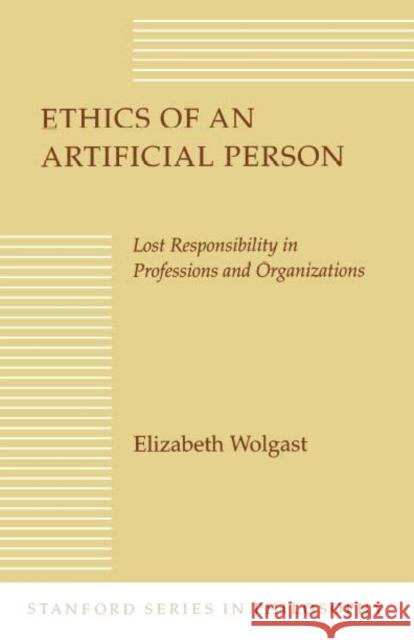Ethics of an Artificial Person: Lost Responsibility in Professions and Organizations » książka
Ethics of an Artificial Person: Lost Responsibility in Professions and Organizations
ISBN-13: 9780804720342 / Angielski / Twarda / 1992 / 176 str.
Ethics of an Artificial Person: Lost Responsibility in Professions and Organizations
ISBN-13: 9780804720342 / Angielski / Twarda / 1992 / 176 str.
(netto: 424,47 VAT: 5%)
Najniższa cena z 30 dni: 440,24
ok. 22 dni roboczych.
Darmowa dostawa!
Artificial persons, as conceived by Hobbes, speak and act in the name of others, so that their actions become the actions of someone else, such as the lawyer who represents and acts for his or her client. In modern institutions we can find many other examples: among them politicians, brokers, real estate agents, bureaucrats, corporate executives, and military personnel. This book focuses on the moral issue of how we can and should locate responsibility for the actions of artificial persons. The author argues that conceiving this question in terms of roles, which may have their own moralities, blocks the kind of moral criticism we want to make, for there is a deep and intractable dissonance between role moralities and moral theory. This dissonance shows that we cannot deal with the moral issues piecemeal, profession by profession, as a role interpretation encourages us to do. Reverting to Hobbe's abstract idea of artificial persons vitiates the compartmentalization of problems. We can freely cross disciplinary boundaries, as well as the line between theory and practice, and allow practices to cast their light back on the theory and show us its deficiencies.











